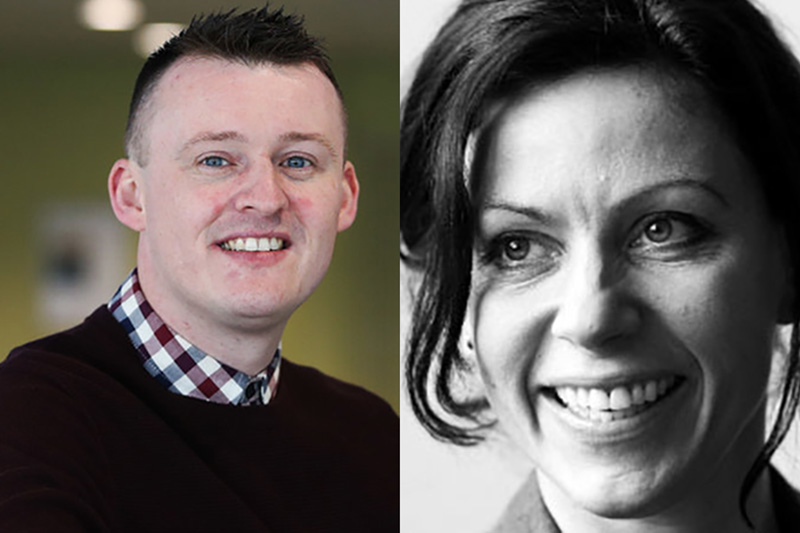Knife crime hit a record high in England and Wales before the COVID-19 lockdown came into place – with police reporting 46,265 cases for the year to March. The recent report by the Office for National Statistics (ONS) said this was 51% higher compared to when the data was first collected in 2011.
Every young person has a right to be meaningfully involved in their own rehabilitation. And giving them a say on how the process works and how it’s carried out is crucial.
During lockdown, knife and gun crime dropped considerably, but these figures have now begun to increase with restrictions easing.
Tougher sentences are often touted as the answer to knife crime. There also seems to be the belief that people who carry out such crimes have forfeited their right to political and public empathy.
The idea that young people should get a say in their punishment then, might also seem far fetched to some. But every young person has a right to be meaningfully involved in their own rehabilitation. And giving them a say on how the process works and how it’s carried out is crucial. Not least because it can help to reduce the likelihood they will carry or use a knife as a weapon.
Current situation
As it stands, youth offending teams work with young people involved in, or on the cusp of, knife-related crime, often ordered by the courts. These teams do in-depth assessments to flag up what’s triggering young people’s involvement in knife crime. And they’ll also look at issues like the impact of childhood trauma on thinking and behaviour.
These teams aim to work in a collaborative way with young people to help them change their behaviour. In theory, this would see young people taking on responsibility for their learning and making decisions on what topics to cover, or acting as spokesperson for the group in feedback forums with their youth offending teams.
But in reality, many young people don’t really engage or involve themselves with the process of rehabilitation. They just see is as “something to get through” – as recent research shows.
The study, which involved 15 months of fieldwork between 2016-2017 with a youth offending team in England, looked at the extent of young people’s participation in the rehabilitation process. It found that some of the young people simply aimed to attend meetings, putting as little as possible into the process. They were seemingly compliant and responsive to demands with little resistance but were actually just going through the motions.
‘Game playing’
One support worker described how some young people seemed insincere – giving a false impression they were content with their specified objectives set by the youth offending team – requiring them to complete worksheets or anger management courses.
Another support worker in the study, Mason, queried whether staff should be digging beneath the surface – especially with young people who appear quietly compliant.
He explained how he felt concerned the “game playing element” of the system discouraged young people from properly engaging in supervision meetings: “Do you see that strategising – is that what we count as good? Or are the ones who chafe against this… is that actually more meaningful? [Is] their participation, more meaningful?”
Jackson, one of the youth offending team managers, explained how a lot of young people just want to complete what’s required of them without any complications: “They see it as a punishment. They see us as part of the… well, and we are, the officers of the court. And a voice of authority. And they wanna get through it for six months, for nine months, for 12 months. They don’t think of participation in a way that, you know… that a practitioner might.”
Indeed, across the study, young people under youth justice supervision generally didn’t want to question those in authority because of fears this could lead to a delay in completing their court order.
The study also revealed that many young people felt decisions about their rehabilitation were largely outside their control – as Tommy explained: “I don’t think it’s up to me to say that, is it? I don’t think… I get a say in what the [youth offending team], do I?”
A collaborative approach
Ultimately, young people’s voices must not be ignored in this process – they have a right to a say about their rehabilitation. But young people need more reassurances to know they are entitled to express their views and that their perspectives will be taken seriously – and not used against them.
To stop young people feeling disaffected, they need to be consistently more involved in the decision-making process surrounding their rehabilitation.
Many of the staff in the youth offending team recognised that empathy and trust plays a pivotal role in bolstering young people’s participation. And research showing the transformative power of mutually respectful relationships backs this up.
To stop young people feeling disaffected then, they need to be consistently more involved in the decision-making process surrounding their rehabilitation.
This will not only help to pave the way for greater levels of engagement, but it will also help to maximise young people’s potential for success – and hopefully reduce the likelihood of them picking up a weapon in the future.
The Authors:
 Dr Sean Creaney, Senior Lecturer, Edge Hill University
Dr Sean Creaney, Senior Lecturer, Edge Hill University
Sean Creaney is a Senior Lecturer in Psychosocial Analysis of Offending Behaviour at Edge Hill University, Ormskirk, UK. His research interests include service user involvement, the tension and interplay between risk and participation in youth justice, young people’s experiences of supervision, and Bourdieu’s theory of practice/analytical tools. Dr Creaney is a member of the Safer Communities editorial advisory board, and was awarded Outstanding Paper in the 2015 Emerald Literati Network Awards for Excellence. He was previously a Trustee of the National Association for Youth Justice where he campaigned for child-friendly youth justice and advocated the establishment of a rights-based statutory framework. He is currently an advisor at social justice charity Peer Power, an organisation rooted in the promotion of empathy.
 Dr Jo Deakin, Senior Lecturer, University of Manchester
Dr Jo Deakin, Senior Lecturer, University of Manchester
Jo Deakin is Senior Lecturer in Criminology and Criminal Justice. She graduated from Goldsmiths Gollege, University of London with a degree in sociology and was awarded an ESRC studentship to complete a Masters degree in social research and a Doctorate at Manchester University. Her doctoral thesis considered the relationship between children’s fears and their experiences of bullying and victimisation. Dr Deakin currently teaches and researches in the areas of Youth Justice and Offender Management, School Behavioural Management, Restorative Approaches with Young People, and Youth Social Control. She has long-standing research interests in youth inclusion, desistance and rehabilitation, and a more recent methodological interest in arts-based techniques for engagement. She is also the coordinator of PROMISE, a Horizon 2020 Project focusing on young people’s opportunities for social engagement.
This article is republished from The Conversation under a Creative Commons license. Read the original article here.




I think the issue surrounding young people and knife crime is much more complicated than this
Firstly there is a perception that knife crime and young people go together. There are many reasons for knife crime and many different age groups involved.
Second there are many organisations already involved in the process. The Home Office has a Youth Endowment Fund supporting many youth led organisations to be part of the solution. The Home Office also supports VERU’s which are 18 Violent Crime Reduction Units these are a collaboration between the police, police crime commissioners and the voluntary charitable sectors who coordinate a whole range of solutions. Many of these solutions already involve young people sometimes before offending has taken place and some provide support to young people and their families after.
The third point I want to highlight when you speak to these young people about how they got involved yes many feel the Youth Offending Teams are there to punish them (clearly they are not there to reward) but some recognise that their role is also to help them to understand their decision making and to make better choices. Sometimes their behaviour may have been a one off, retaliating out of anger or because they were in a corner, others may be well known perpetrators who are serial offenders and seem to be escalating in their criminal behaviours.
Overall there is not a one size fits all solution to this problem. Solutions have to b bespoke, should include early intervention, partnership work, inter agency solutions using either the public health approach or the whole community approach.